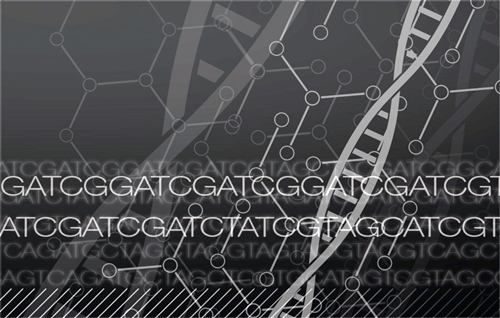30 March 2016. Informatics and genomics researchers at University of Colorado in Denver designed an automated system that matches genetic variations with FDA-approved cancer drugs. The team led by oncology and informatics professor Aik Choon Tan published its findings yesterday (29 March) in Journal of the American Medical Informatics Association; paid subscription required.
Tan and colleagues developed their system called Integrating Molecular Profiles with Actionable Therapeutics, or Impact, to provide a tool for finding the best available treatments that match an individual’s molecular make-up. In this case, the researchers analyze people’s exomes, that represent about 2 percent of all base pairs in a genome, but still account for about 85 percent of disease-causing genetic variations.
The Impact system inspects the sequence of base pairs in the exome connecting the DNA molecules represented by the letters A, C, G, and T. The system then analyzes the sequences of those molecules to identify genetic variations, by mapping the person’s DNA against normal or healthy patterns of genes. Impact also looks for copy number variations, where numbers of a specific gene in one person differ from other people. These large copy-number differences in genes are sometimes associated with particular types of cancer.
The analysis yields variations in genes associated with cancer, which then serve as targets for treatments. Impact searches public databases associating genetic variations with cancer therapies, including the NCI-MATCH clinical trial at National Cancer Institute and MyCancerGenome.org. Tan and colleagues designed the system to return a prioritized list of treatments approved by the FDA that best fit the genetic variation profile of the patient.
In addition, Impact performs a tumor heterogeneity analysis that examines the extent of variation among cells within a patient’s tumor that can occur as the tumor develops over time. Tumor heterogeneity is important as a predictor of the efficacy of treatments, since large variations in tumor cells may limit a drug’s effectiveness, as well as indicate potential resistance to the drug.
“We hope that Impact proves to be an important tool in empowering the shift toward precision medicine,” says Tan in a university statement. Tan’s lab makes Impact freely available for download.
In their paper, the researchers tested Impact with whole exome data from The Cancer Genome Atlas that stores genomic data for research on cancer. In this case, the team examined data from individuals with lung cancer from mutations in the epidermal growth factor receptor or EGFR gene, where at least 8 variations are associated with lung cancer. The system identified appropriate drugs that limit the actions of EGFR mutations.
Impact then took on a more complex scenario, with melanoma — advanced skin cancer — in a patient that developed a resistance to treatments addressing B-Raf proto-oncogene, or BRAF mutations associated with some forms of the disease, leading to relapse. The analysis identified mutations linked to the resistance and relapse, and treatments targeting those mutations.
But the analysis also showed another mutation, where a key gene that helps suppress tumor growth, known as CDKN2A, was deleted. Drugs available now to treat this specific mutation are limited, but Impact did identify a breast cancer drug, palbociclib, approved by FDA in 2015 to treat some forms of breast cancer, that addresses similar mutations.
Read more:
- Biomarker Profiles Shown to Improve Ovarian Cancer Survival
- Genetics Company Makes Available Cancer Sequencing Database
- Company Hosts Cancer Genome Cloud, Raises $45 Million
- Harnessing Big Data for Precision Medicine
- Illumina Providing Genomic Analysis for Precision Medicine
* * *


 RSS - Posts
RSS - Posts
[…] Exome Profiles Tapped for Precise Cancer Therapies […]